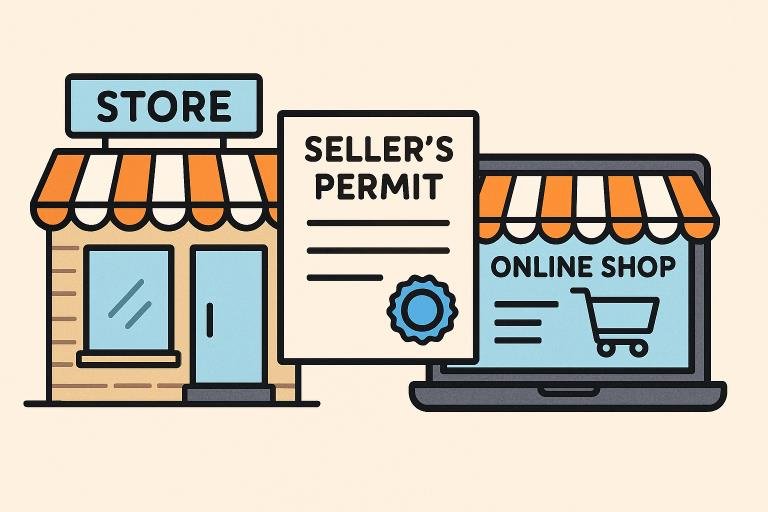For small business owners, securing a seller’s permit is one of the foundational legal steps in establishing a retail operation. This permit, often acquired through a state’s sales tax application process, goes beyond authorizing businesses to collect sales taxes—it sets the stage for business legitimacy, transparency, and growth opportunities within your industry.
Whether opening a brick-and-mortar shop or launching an e-commerce platform, understanding and properly managing your seller’s permit requirements signals a commitment to compliance. Not only does it help you avoid costly penalties, but it also instills trust among your customers and establishes a solid framework for supplier partnerships. Starting out on the right foot with the proper permit ensures your business can scale in a competitive environment.
Understanding the Seller’s Permit
A seller’s permit, sometimes called a sales tax permit or license, is a state-issued authorization granting your business the legal right to collect tax on taxable goods and certain services. The process for acquiring a permit can differ by state, and the types of transactions requiring a permit also vary. Typically, almost all tangible personal property is taxable, but each state may exempt some services or specific goods. To get started, businesses must complete a sales tax application through their state’s tax authority, ensuring they meet all regulatory requirements. The sales tax collected from customers must be reported and remitted to the appropriate state tax authority. Failing to do so can result in audits, fines, and legal trouble.
Who Needs a Seller’s Permit?
If you sell tangible goods or taxable services, a seller’s permit is almost always a legal necessity. This mandate covers storefront businesses, pop-up shops, online retailers, and vendors at markets or fairs. Even in states without a general sales tax, certain goods or local sales tax scenarios are often exceptions. Thoroughly researching your state’s requirements ensures your business remains compliant and avoids unnecessary risks.
Steps to Obtain a Seller’s Permit
Research state requirements on your state’s Department of Revenue website to obtain a seller’s permit. Gather necessary information, such as your EIN, Social Security Number, business entity structure, and itemized description of goods or services. Submit your sales tax application online or in person, ensuring all details are accurate. Pay applicable fees, which can vary across jurisdictions. Understand these costs ahead of time to avoid processing delays. If you operate primarily online, display the permit prominently at your business or website. This process ensures smooth transactions and compliance with local regulations.
Maintaining Compliance
Maintaining a seller’s permit involves consistent and accurate sales tax handling processes. This includes collecting the correct state and local rates for each transaction, filing regular returns on a regular schedule, and staying informed about changes in regulations and tax rates. Missing deadlines can result in penalties and interest charges. Subscribing to state tax authority updates and consulting trusted resources for ongoing compliance is crucial.
Benefits of Holding a Seller’s Permit
A seller’s permit not only fulfills legal requirements but also offers operational benefits such as compliance with local and state regulations, ensuring business safety from shutdowns or fines, establishing supplier relationships with wholesalers and distributors, and fostering customer trust through accurate sales tax collection, which can lead to repeat business and long-term success.
Challenges and Considerations
The landscape of state and local tax regulations can be complex, and managing your obligations as your business grows or operates in multiple states can be daunting. Rapid e-commerce and remote sales changes have led to evolving requirements in many states, especially those adopting economic nexus rules. New business owners can benefit from support resources, including the U.S. Small Business Administration’s guide on licenses and permits, to help navigate these intricacies.
Conclusion
A seller’s permit is fundamental in building the legal and operational strength of any small business selling goods or taxable services. Compliance ensures smoother operations, instills public confidence, and paves the way for growth and future partnerships. By prioritizing your sales tax obligations and staying well-informed, you establish a strong foundation for success in today’s changing marketplace.



